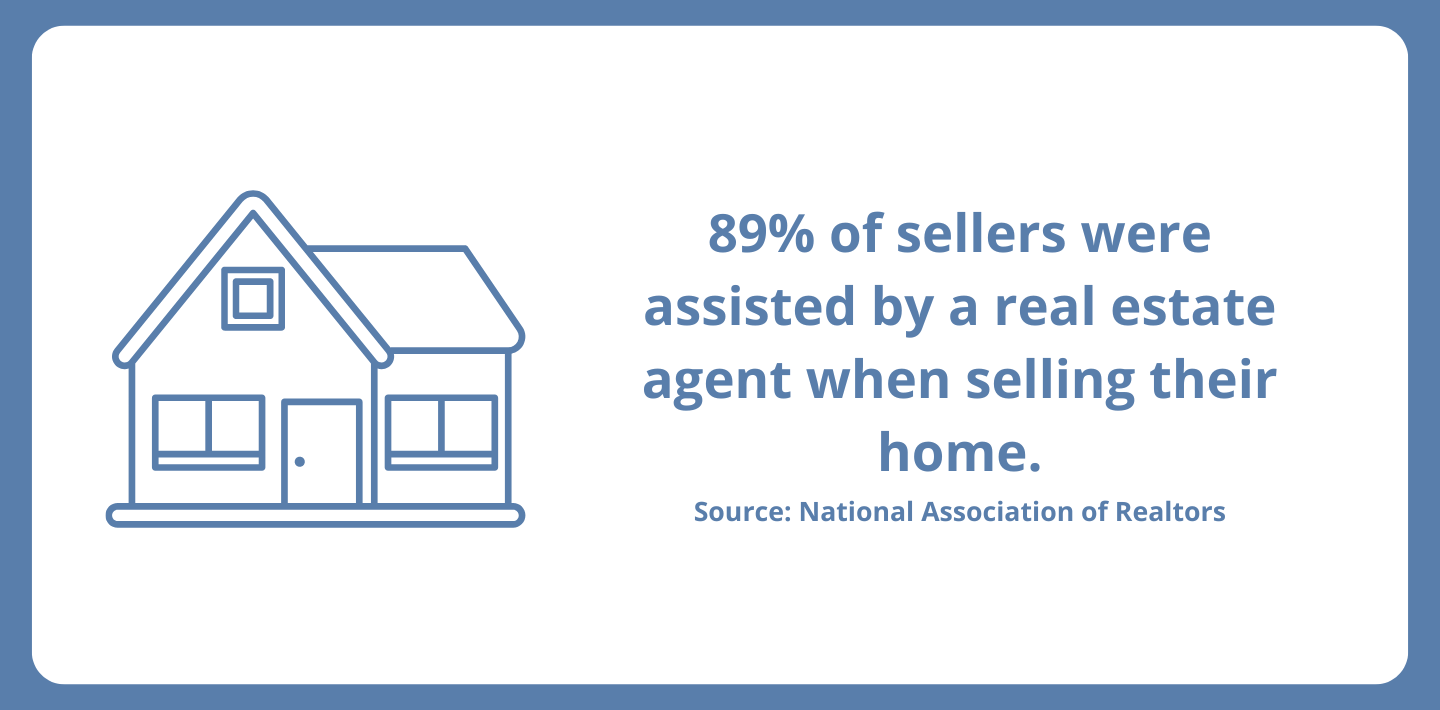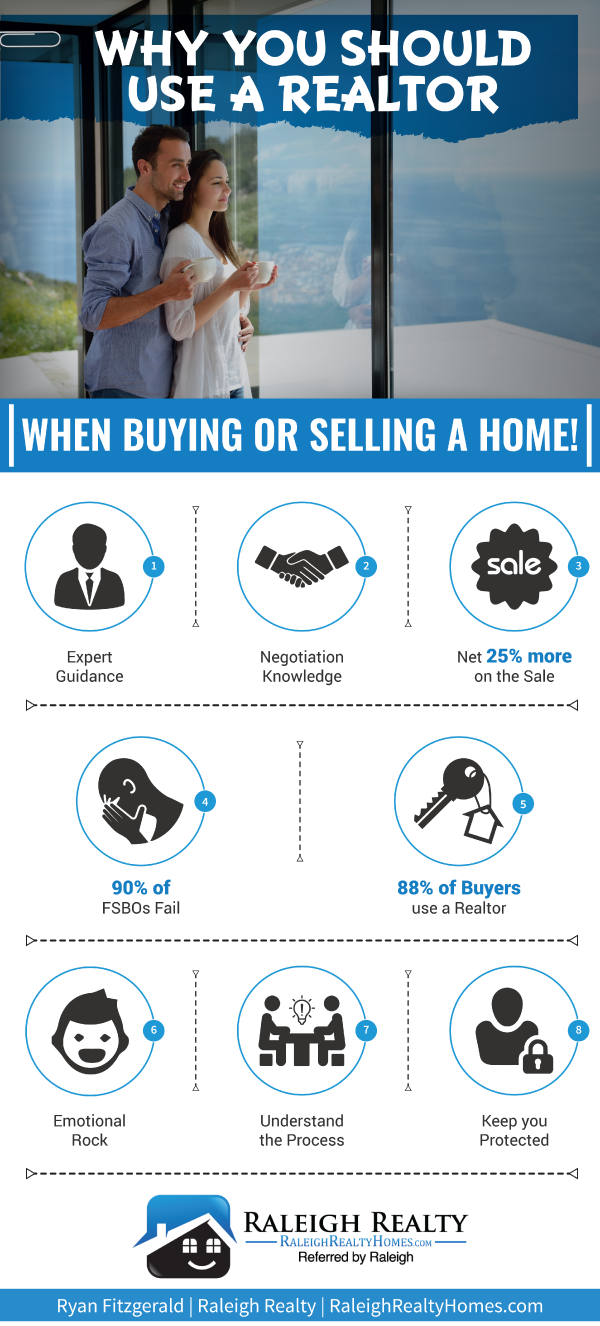Dealing With Multiple Offers On Your House
Are you selling a house with multiple offers and don't know what to do? Here's how to handle multiple offers on your home.
In a seller's market, receiving multiple offers on your home is very common when the number of buyers exceeds the number of properties. As a seller, you will have a couple of different options to choose from, which can seem overwhelming, but keep in mind that you have the control, which makes it less daunting.
With the housing inventory still tight and prices very high, odds are you might find yourself getting multiple offers on your house. The National Association of Realtors analysis found approximately 2.8 offers for every home listed.
While it seems like you have many offers and a bidding war over your listing, the situation can be very stressful for a seller. Whether you need to decide which offer is best or whether it is worth your time, real estate agents are there to give you advice and help you compare the potential buyers' offers to find the right one.
When you are trying to buy your forever home, it is recommended that you have a professional with you to help you through the buying process. This is especially true in a seller's market when the housing market is highly competitive, and offers will be multiple. Ensuring you make the most attractive offer will increase your chances of getting your dream home.
Here is how you should deal with multiple offers on your home.
1. What Happens When a Seller Gets Multiple Offers?
When you are selling your house and get multiple offers, you, as a seller, have the most control. Many buyers like to think that every offer is even, but realistically, it does not matter; it is whatever the seller likes and accepts.
In some situations, sellers will have several competing offers to consider, so the seller has many ways to deal with them. Sellers can accept the "best offer," inform other purchases that other offers are on the table, counter one offer by putting others to the side, and wait for a decision. Sellers can counter offers as well as reject others.

While the listing agents can offer suggestions and advice to the seller, the seller makes the overall decision. Keep in mind that offers generally are not confidential, and sometimes, sellers may make other buyers aware of the offer at hand so they will make a better offer.
There are many ways to face multiple offers as a seller. A listing agent advises you on the best thing to do because sometimes, considering all the options may be hard, especially if you are a first-time home seller. Making sure you make the best decision for you is what matters.
2. What Makes a Good Offer?
Having a larger amount of money can be very helpful in making your offer stand out. If a seller receives two offers, one all-cash at the asking price or higher and the other below the asking price but requiring a loan, the seller will likely choose the all-cash offer every time.
Various terms and conditions are involved in a sale, so there are many ways to make your offer more appealing to the seller. A general guideline is to offer between 5 and 10 percent of the home price. However, it's important to remember that if the deal falls through, you could lose your money, so caution is advised throughout the process.
For instance, if a home is listed for $250,000, but similar-sized homes in the area have recently sold for around $220,000, it would be wise to offer closer to $220,000. On the other hand, if most homes have sold for around $275,000, offering the asking price of $250,000 would represent a good deal for you.
According to the National Association of Realtors, recent sellers sold their homes for 100% of the listing price, and 32% reported reducing the asking price at least once. Similar to this, you should consider your competition. Bidding wars may seem intimidating, but if you want the home, you should know how much others offer for it.
3. Bidding Wars
Finding yourself in a bidding war can be stressful. However, if you understand how bidding wars work and strategies to help maximize your chance of winning the bidding war, then you have a higher chance of winning your dream home you love. Bidding wars may seem intimidating, but if you want the house, you should know how much others offer for it.
When dealing with multiple offers, sellers are more likely to accept the most attractive offer, especially if it exceeds the asking price and includes additional perks. Planning your strategy before making an offer on a home is crucial for success in a bidding war.

Bidding wars move quickly; buyers typically raise their offers instead of negotiating. Sellers have the upper hand and usually await each buyer's highest and best offer. Bidding wars often conclude within days.
High housing demand and low supply are creating a seller's market, benefiting home sellers. Bidding wars are becoming common, resulting in higher selling prices. Your success in winning a bidding war depends on several factors. Having a solid plan and all the details worked out is crucial before making an offer on a house.
4. The Highest Offer is Not Always Best
Many people go for money first, but in this case, that might not always be the best option. Someone could offer you the highest amount on your house, but if they can not prove that they are financially able to support that number, it is useless.
As a homebuyer and seller, you must be aware that a number is just a number. When you are selling a house, there are contingencies, timelines, and fees that all go into the selling process. Having a qualified real estate agent by your side will help you evaluate all the factors you should consider.
Here are some questions to should ask or be aware of when it comes to multiple offers:
- What percentage of the purchase price is a loan?
- What type of loan?
- Are you waiving any inspections?
- Are the dates of the contingencies right?
- What is your requested closing date?
- Does the buyer have another home to sell?
When you are dealing with multiple offers that are beyond the price, there are many different things you should consider and ask. As a seller, you should be aware of advantageous factors so you can make the most of your house instead of rushing to the first or highest offer.
When it comes to money and finances, you should always look at the potential buyer's financial picture, not just the offer price. You should consider their loan status, down payments, current housing situation, ability to bridge an appraisal gap, and many other things.

5. How to Get Multiple Offers on Your House
There are many ways to get multiple offers on your house, but overall, if you are in a seller's market, you should expect multiple offers due to the lack of inventory and demand for homes. Having multiple offers on your house gives you more room to get more perks and the best deal rather than just one offer.
Here are some ways you can get multiple offers on your house:
- Price it aggressively
- Give buyers and brokers access
- Make your home beautiful
- Expose it to the market (open houses and marketing)
- Research other similar properties
6. How to Handle Multiple Offers
There are several ways to approach multiple offers. You can ask all bidders to come back with their highest offer and best terms, ask for one of the offers on the table, negotiate with one or more offers but exclude some, or request all the offers.
As a seller, your priorities may not be the same as those of other sellers. There are many tips to help you ensure you make the best decision for yourself and not for someone else. Some things you should consider:

The Highest Offer Is Not Always The Best Offer
As stated before, the highest offer is only sometimes the best one to accept. Most sellers hope to make the most money possible with their sales, so they tend to get very excited about the high price. But you need to remember that offers are made up of more things than just the money being offered, so make sure you consider everything in it.
Non-contingent Offers Usually the Best
Buyers must be able to fund their offers. The buyer might also include contingencies in the offer you are not eager to accept. Remember, your home may not be worth the price you are asking, which means the appraisal could be low, preventing the lender from financing what the buyer needs.
All-Cash
All-cash offers are attractive incentives for sellers because they eliminate much of the waiting that can happen with mortgage approvals. When you pay an all-cash deal, fewer things can go wrong with the transaction, allowing you to speed up the process more. This is highly attractive to sellers and can give a buyer an advantage.
If you cannot make an all-cash deal, that is okay. You can make your offer more attractive to the seller by offering an earnest money deposit or even making a larger down payment.
Appraisal Gap Clause
Many people can not pay cash for a home, so the next best thing is an appraisal gap guarantee clause inserted into the real estate contract. An appraisal gap clause says the buyer will agree to cover any gap between the agreed-upon sale price and the appraised value.
Home Inspections
When there is a bidding war, people may do things they usually wouldn't, such as waiving their right to a property inspection for a seller who is very attractive to them. If your home is older and has deferred maintenance issues, an offer without an inspection contingency will give the seller a lot of weight.
It may be in your cards that you waive the home inspection. You should still get an inspection to identify any potential issues, but you do not have to make the sale contingent on the inspection results. However, remember that contingencies protect you as a buyer, so dropping them may incur a significant out-of-pocket cost.
Earnest Money
Earnest money is usually one percent to five percent of the purchase price, and it is vital because it holds the buyers. The higher the amount, the better. If the buyer violates anything in the contract, they will lose their money.
7. What Not to Do With Multiple Offers
Multiple offers can be hard to handle, so understanding how to deal with them is vital as a seller. There are a couple of things you do not want to do when you have multiple offers, such as:
- Drag out responding in an attempt to get even more offers. Do not piss off your potential buyers.
- Do not get greedy. Treat buyers with honesty and respect.
- Do not use a bad offer to get more of a good offer. This may backfire, and you will be left with nothing.
Overall, if you are a seller, treat the buyers how you would want to be treated if the roles were reversed. No one wants to get their hopes up or be lied to just to get more money. This will ruin your house's sale, so make sure you listen to your selling agent for advice on how to go through the process correctly.
Methodology
We used information from different sources and our data to create this guide about how to deal with multiple offers on your home. There were various data to use, so we put them together to help you understand how to deal with multiple offers.
Above are a few sources we used to gather most of our information about dealing with multiple offers on your home.

FAQS
What is considered a strong offer in real estate?
The deposit amount varies depending on the purchase price, but a strong offer is usually between 2% and 3% of the purchase price. A strong offer shows the seller that you are serious and motivated to buy the house.
How to convince a seller to accept your offer?
A few things will help a seller want your offer, such as making sure the price fits, showing proof of pre-qualification, offering more earnest money, waiving certain contingencies, limiting your ask, and being agreeable and polite overall.
Do sellers usually go for the highest offer?
As a seller, you usually ask for the highest and best offer to eliminate negotiations and expedite the deal. With the best and final offer, you are asking buyers to go above the competition to convince the seller to choose them. So, sometimes sellers don't always go for the highest offer; there is a lot that goes into choosing.
Dealing With Multiple Offers On Your House - The Bottom Line
All sellers would love to have multiple offers on their house. You can do many things to attract more buyers to get there, but overall, knowing how to deal with various offers when you have them is essential in your home sale.
When you have multiple offers, there are four main things to remember: accept the best offer and reject the others, engage in a bidding war, let all parties know there are other offers and invite them to put better-competing offers down, and counter the best offer and reject the rest.
If you are considering moving or selling, contact us or visit our website. Our team at Raleigh Realty is here to help you with any home buying or selling needs.




